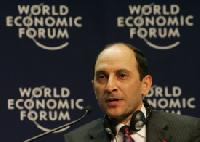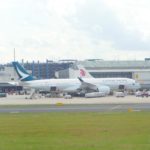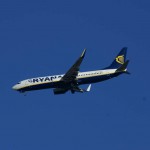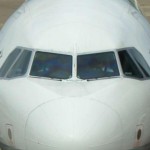Intense regional and global competition facing airlines in the Middle East came under the spotlight during a discussion session featuring Qatar Airways Chief Executive Officer Akbar Al Baker at a meeting of the World Economic Forum in Egypt.
Sharm El Sheikh, EGYPT – Al Baker was among a delegation of political and business figures representing the State of Qatar at the meeting, during which he addressed a Plenary Session on The Challenges of Going Global.
More than 1,200 international delegates drawn from political, social, economic, business and academic circles gathered in the Red Sea resort of Sharm El Sheikh for the high-level three-day meeting.
Al Baker spoke of how Middle East companies were becoming more global by expanding their operations away from the Arab World thanks to more liberal trade agreements with other countries.
The world, he said, was waking up to the fact that the Middle East – in particular countries in the GCC – was grabbing the limelight and entering the global market place with vigour.
As part of this process, he said airlines based in the region were taking advantage of greater opportunities and were helping drive trade and commerce with rest of the world.
New air routes helped bridge ties between countries and facilitate trade, he stressed, adding that airlines were pivotal as the economic engine of their home countries.
The Middle East regional aviation industry is a clear-cut example of how competition and trade have helped strengthen economies and build traffic flow between countries, he said.
Despite political and social problems in the Middle East, the region was emerging as a powerful economic trading force. UAE companies, he said, were striking it rich with property deals in Europe, US and Asia and such arrangements were enhancing the image of the Arab world as cash-rich nations. Its businessmen and women have the acumen and are on par with any business house worldwide, he added.
Al Baker, however, pointed out that despite the trade building process, regional companies faced political obstacles in expanding their reach globally. As a trading region, the Middle East had not enjoyed the same benefits as companies in Europe, North America or even Asia, he said.
Middle East countries must learn to work together as a trading bloc to give them more leverage in the global marketplace, warned Al Baker.
Within the aviation environment, individual countries have been, until now, striking bilateral agreements with other countries which have given their airlines a new lease of life in the race for market share amid tough competition.
Aircraft manufacturers in Europe and America are fighting to secure orders with the Middle East’s burgeoning cash-rich airlines, added Al Baker.
He said that Qatar Airways was strategically well placed within the region and rest of the world to compete effectively. Qatar Airways was a successful example of determination and vision by the Emir of Qatar to create a thriving international business and propel the nation into the international spotlight.
Al Baker, who has been at the helm of Qatar Airways since 1996, has transformed the airline from a small regional player to award-winning global carrier. From a handful of routes with a small number of aircraft, the airline has grown rapidly to an international network of 70 destinations and a fleet size of 47 modern all-Airbus jets. The airline will almost triple its fleet size to 110 aircraft by 2015.
As a strategic partner of the World Economic Forum, Qatar Airways hosted the World Economic Forum’s Arab Competitiveness Round Table in Doha last year. A second Round Table will be held in Doha in Spring 2007.
Notes to Editors:
Qatar Airways is one of the fastest growing airlines in the world operating a modern fleet of 47 all-Airbus aircraft to 70 destinations across Europe, the Middle East, Africa, Indian sub-continent and Asia from its operational hub in Doha, capital of the State of Qatar in the Arabian Gulf.
The World Economic Forum is the foremost global community of business, political, intellectual and other leaders of society committed to improving the state of the world.
Incorporated as a foundation, and based in Geneva, Switzerland, the World Economic Forum is impartial and a non-profit making body. It is tied to no political, partisan or national interests. The Forum has NGO consultative status with the Economic and Social Council of the United Nations.






